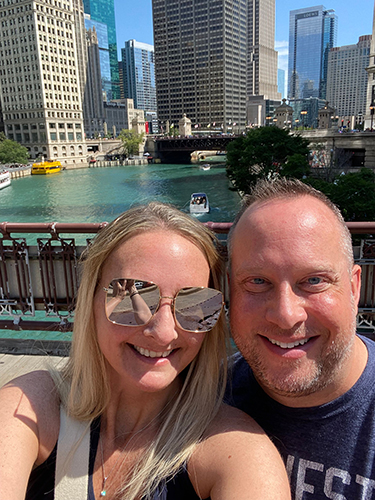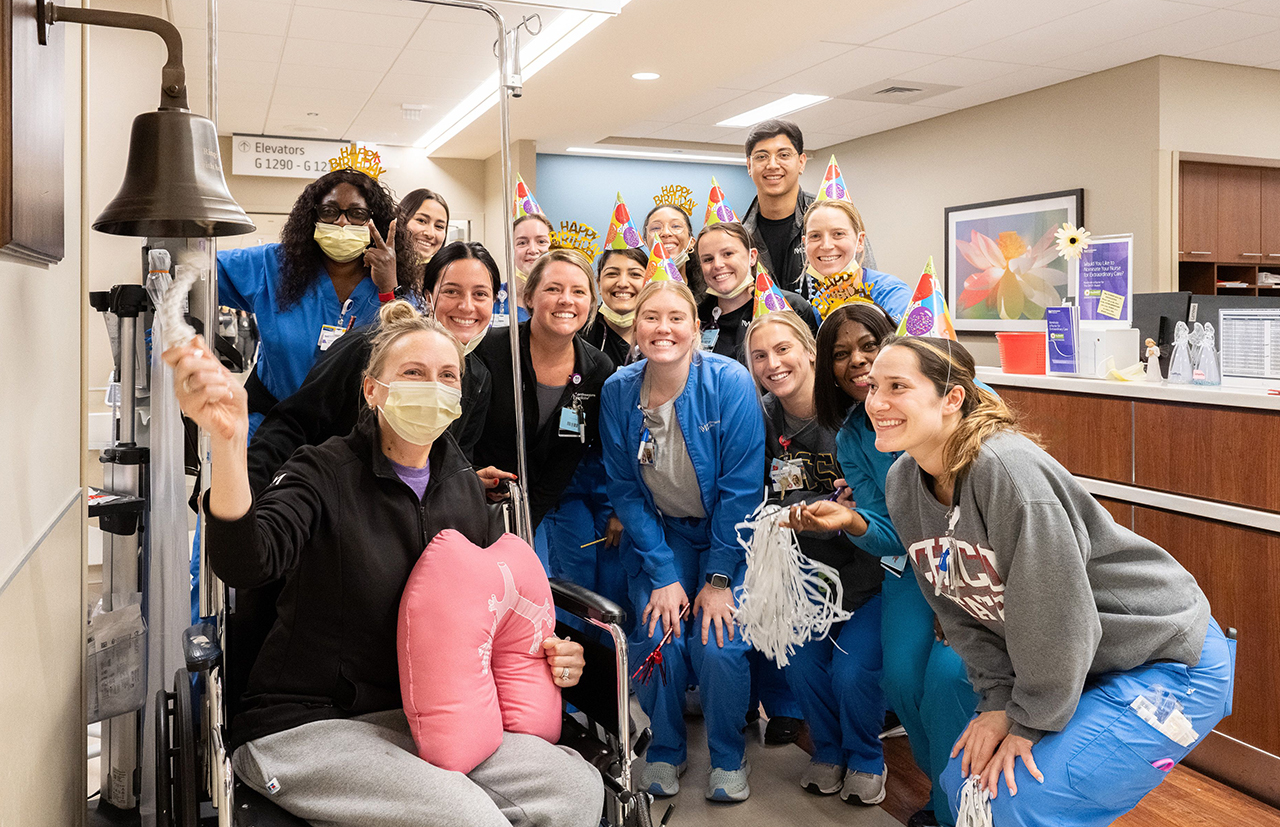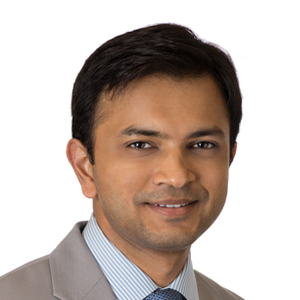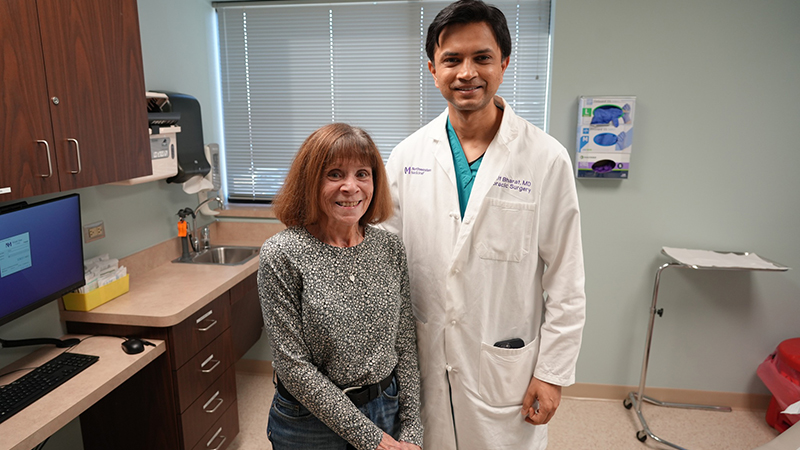Double-Lung Transplant Saves the Life of a Minnesota Woman With Stage 4 Colorectal Cancer
First-of-Its-Kind Surgery at Northwestern Medicine
Published September 2024
In 2017, at age 34, Amanda "Mandy" Wilk of Savage, Minnesota, thought she had a case of food poisoning. Persistent symptoms led to a shocking diagnosis of stage 4 colorectal cancer that had already spread to her liver. She had cancer treatment and eventually a liver transplant thanks to a living organ donation from her brother in 2020. The cancer subsided, but then returned — this time, to her lungs.
Her determination has no limits.— Catherine N. Myers, MD
"I traveled to almost every major health system across the country, and they all told me there was nothing more they could do," says Mandy. "I believe in forward-thinking and was not going to take 'no' for an answer. So, when I inquired about the DREAM Program at Northwestern Medicine, I was ecstatic that they were ready and eager to help me live." The Double Lung Replacement and Multidisciplinary Care (DREAM) Program is a first-of-its-kind clinical initiative at Northwestern Medicine designed for select patients with advanced lung cancer who are not responding to conventional treatments. At the center of the DREAM Program is a breakthrough surgical technique — a double-lung transplant designed to significantly reduce the risk of cancer returning and minimize complications.
New Lungs in Chicago
Mandy's partner, Chris Withers, is a television producer for the Chicago White Sox, so Chicago is a second home for the couple. During the offseason, they live in Minnesota; but for Mandy, much of her baseball season is split between Minnesota and Chicago. So, traveling to Chicago for a lung transplant evaluation and eventual transplant was made easier with a second home base. In March 2024, Mandy had her lung evaluation. By early June, she had received her new lungs. She was discharged from Northwestern Memorial Hospital one week later on June 10 — her 42nd birthday.

"This is a first-of-its-kind surgery at Northwestern Medicine where a patient with stage 4 colorectal cancer has successfully received a double-lung transplant," says Ankit Bharat, MD, chief of Thoracic Surgery and director of Northwestern Medicine Canning Thoracic Institute. "Our surgical team meticulously removed Mandy's cancer-ridden lungs without allowing any cancerous cells to spill into her bloodstream, and then we transplanted new lungs. Based on all the testing that's available to us — CT scans, PET scans and molecular analyses of circulating cancer DNA in Mandy's blood — we don't see any remaining signs of cancer in her body. While we're optimistic about her future, it's important to approach this with cautious optimism, as further research is needed to understand the long-term outcomes."
Celebrating No Signs of Cancer
As part of her birthday celebration, Mandy was able to "ring the bell," which signals that she had completed cancer treatment. She currently has no signs of cancer in her body and doesn't require any further cancer therapy.

"Throughout my eight-year journey of battling cancer, the one thing I've always wanted to do was ring the bell," says Mandy. "Many doctors told me I'd never be able to ring it, so when my lung transplant social worker made it happen on my birthday, there was no greater feeling. I was finally able to celebrate being cancer-free."
Back to Life — and Running
Mandy was recently given the green light by her Northwestern Medicine lung transplant pulmonologist, Catherine N. Myers, MD, to start running again. While in Chicago, Mandy can be found walking and jogging along Chicago's Lakefront Trail. Her goal is to one day run a marathon.
"Mandy has flown through the recovery process. Typically, lung transplant patients require several days, if not weeks, in a rehabilitation center, but because Mandy was young and made exercise a priority before transplant, rehab wasn't needed," says Dr. Myers. "When Mandy asked me about being able to run again, I told her to start slow and gradually build up speed. Her determination has no limits, and I wouldn't be surprised to see Mandy cross another finish line soon. As a runner myself, if Mandy decides to run the Chicago Marathon someday, I would love to run alongside her."
Giving Back and Inspiring Others
Beyond her medical journey, Mandy is passionate about education and the arts, and uses her skills to help pay it forward. Four years ago, her brother Adam started Mandy's Foundation, which has raised more than $60,000 for the art therapy program at Ann & Robert H. Lurie Children's Hospital of Chicago.
"I have been given a new gift of life not once, but twice — first with my new liver, and now with my new lungs," says Mandy. "When you're diagnosed with cancer, oftentimes you're treated like a number and not a person, but my team at Northwestern Medicine saw and treated me as Mandy. I hope my story inspires others to continue advocating for themselves."
Learn more about lung transplantation.







